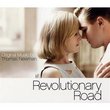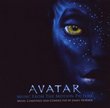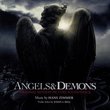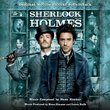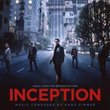| All Artists: Frost, Nixon Title: Frost/Nixon (OST) Members Wishing: 0 Total Copies: 0 Label: Indie Europe/Zoom Release Date: 1/5/2010 Album Type: Import Genre: Soundtracks Style: Number of Discs: 1 SwapaCD Credits: 1 |
Search - Frost, Nixon :: Frost/Nixon (OST)
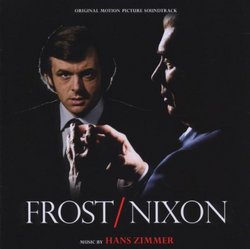 | Frost, Nixon Frost/Nixon (OST) Genre: Soundtracks
|
Larger Image |
CD DetailsSimilar CDs
|
CD ReviewsA Minimalist Score From Hans Closes Another Great Year Kaya Savas | North Hollywood, CA | 02/26/2009 (5 out of 5 stars) "I know this is a little late, but for some reason I never got around to reviewing it. Hans Zimmer closes out another stellar year with his minimalist score to Frost/Nixon. The score finds a pulse and goes on it. It's very unique and definitely completes the wide array of genres we've seen Zimmer attempt in 2008 like The Dark Knight to Kung Fu Panda. The main motif is a cello based cue that dips in and out throughout the score. It's a score that works incredibly well with the image. I also applaud the restraint shown yet still managing to incorporate thematic material. I mean, scoring a dialogue based film fueled mainly by the performances is no easy task. While watching the film I kept feeling like I wanted the score more upfront and I can tell it was pushed back in the mix, but there were definitely a couple scenes that relied heavily on the score. You really notice the score come front and center in the third act of the film and it basically carries you right to the final image on screen. It's another amazing score from Hans and it closes another fantastic year for him." Dramatic Zimmer, at his best Jon Broxton | Thousand Oaks, CA | 08/05/2009 (4 out of 5 stars) "From a modern vantage point it's remarkably easy to look back at the events of 1974, to the presidency of Richard Nixon and the Watergate scandal and forget just what a momentous moment in American political history it was. The aftermath of scandal - which included incidences of campaign fraud, political espionage and sabotage, illegal break-ins, tax fraud and illegal wiretapping - were far-reaching, and changed the political landscape of the nation forever. Three years after Nixon's resignation he was interviewed by the British TV journalist and satirist David Frost for the show `Frost on America', and the resulting encounter between the men became one of the most notorious moments in television history when, during the interviews, Nixon made a tacit admission of guilt regarding his role in Watergate, despite having been officially absolved of responsibility and pardoned by President Gerald Ford. This fascinating series of encounters between these two remarkably intelligent and astute men was turned into a play by screenwriter Peter Morgan starring Frank Langella as Nixon and Michael Sheen as Frost. The play was hugely successful, and was nominated for several Tony Awards, and has now been turned into a feature film by acclaimed director Ron Howard, with Langella and Sheen reprising their roles on the big screen.
Having gone through composers as varied as Lee Holdridge, James Horner, Thomas Newman, John Williams, Howard Shore and Randy Newman, director Ron Howard seems to have settled on Hans Zimmer as his composer du jour. Frost/Nixon is Zimmer's third collaboration with the Oscar-winning director after Backdraft and The Da Vinci Code, and it is arguably the most accomplished work the pair have done together. I have always been of the opinion that Hans Zimmer is at his best when he is scoring smaller, more intimate movies that require a touch of understatement and restraint. While Zimmer's legions of followers generally tend to go ga-ga over his big screen action adventure movies and their accompanying scores, and while there is often much to enjoy in those types of scores, my personal favorites of his are his interpersonal dramas: scores like Beyond Rangoon, The House of the Spirits, Regarding Henry. One of the main problems Zimmer undoubtedly faced in scoring Frost/Nixon was that of how to bring it to life. The film, like the stage play that precedes it, is basically about two people talking to each other, a game of intellectual chess, as one player attempts to uncover the truth, while the other struggles to continue to conceal it. As such, the music has no exotic locales, car chases or action sequences on which to build, and so Zimmer was forced to internalize the music to a great extent. Ultimately, Zimmer chose to write music which contains a great deal of energy and movement, reflecting not physical movement, but the mental maneuvers the two protagonists carry out on each other as the film progresses. The score is heavy on strings, percussion and piano, with special emphasis on cellos and basses, but light on theme and melody; at times it recalls the churning underbelly of scores like The Da Vinci Code, while at others it has the sinister, moody overtones of scores like The Ring. The opening cue, "Watergate", is wonderful, a masterful exercise in atmospheric tension building, as cellos and pianos dance and bubble around each other, underpinned by an incessant wooden percussion ticking and increasingly urgent string writing. Stark, lonely piano chords and humming string pedal tones characterize "The Numbers", although these are tempered with a touch of Thomas Newman's American Beauty stylings in the sprightly, metallic, percussion-heavy dances in "Hello, Good Evening and Welcome" (a cue named after Frost's famous catchphrase) and "Beverly Hilton", which are superbly upbeat and showcase the same instrumental ensemble in a completely different way. Elsewhere, there's a definite hint of tragedy in Martin Tillmann's cello performance in "Status", and an introspective, reflective mood to the appropriately downbeat "Frost Despondent". The eerie, ethereal (but short) "Cambodia" contains an unusual, effective processing effect on the strings which makes the cue a very interesting experience. The modern "Research Montage" is another upbeat, energetic exercise in texture and rhythm, again underpinned by Tillmann's mewling cellos. "The Final Interview" contains a lush, rolling piano element which is, by turns, beautiful and slightly ominous, while the conclusive 9-minute piece "First Ideas" has a real element of darkness to it, and really showcases Tillmann's cello performances, before descending into a quite downbeat, very atmospheric finale. When I say that a score is `atmospheric', a reader can usually take that as film music reviewer shorthand for `dull', but that is categorically not the case on Frost/Nixon. While it's true that there is no real thematic element to latch onto, Zimmer's textures and his use of certain instruments mean that the listener's interest is never lost. I love it when Zimmer writes like this - for the most part leaving his synths at home and instead showing us his simple orchestral prowess, and reminding us why he remains one of the most sought-after composers in Hollywood. What I like most about Frost/Nixon is the way in which Zimmer's score is essentially the backbone on which the encounters between Frost and Nixon are hung. Listening to this score, one can easily envisage how Zimmer's music drives the narrative, giving the film enhanced internal dimensions. A regular criticism of Zimmer is that his music is essentially wallpaper, offering minimal commentary on the subtext of the film it accompanies. This is patently NOT the case here; in fact, one could easily make the argument that, without Zimmer's management of the film's overarching tone, the end product could be little more than a filmed stage play, lacking any kind of cinematic scope. This success Zimmer has in this respect is testament to his skill as a dramatist; I only wish he would use it more often. Scores which accompany films like this are often recognized by awards bodies at the end of the year, and taking into account the current trends in Oscar voting, I would not be at all surprised to see Zimmer pick up his eighth Academy Award nomination for his work here." |

 Track Listings (14) - Disc #1
Track Listings (14) - Disc #1